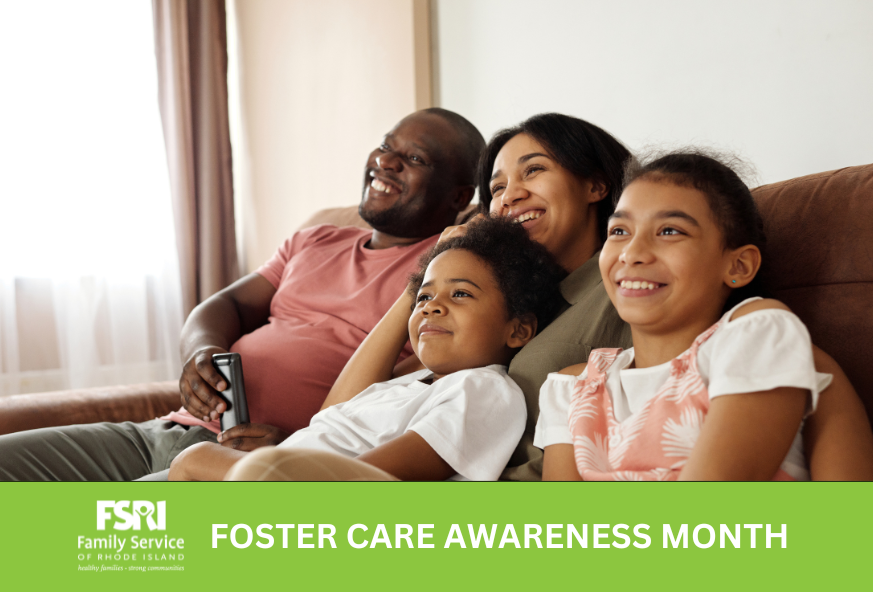Please note that some names and other identifying information in these stories have been altered to protect the confidentiality of those involved.
Written by Emma B. –
“If people knew how many kids in their neighborhood were in foster care I think they would be more open to it” explains Jhane Pereira, Project Manager for Licensing and Recruitment at FSRI. The foster system is shrouded in myths and misconceptions and often these misconstrued views of the foster system and how it functions can prevent people from becoming foster parents.
“Society’s view of foster parents is sometimes a barrier,” Jhane Pereira remarked. The belief that some adults become certified for the money has been spread through movies and shows about fostering with the most classic example being the remake of the musical Annie where Ms. Hanigan takes in the girls to receive payment from the state. While this concept has little basis in reality it has created a more negative outlook on foster parents.
On top of this, some people think they must be married, own a house, or be in a certain financial bracket to foster. Each of these is in no way a barrier to fostering but because so many people believe it is, many don’t ever look into the possibility of fostering.
Other misconceptions surrounding regulations are the belief that you cannot have other kids in the house, practice certain religions, or that you can’t be part of the LGBTQ+ community. Once again fostering is not impacted by how people live or who they live with and fostering is open to anyone willing to help a child in need.
The other major barrier is the misconceptions about the children in the system. “Most people think that the kids in foster care were abandoned and they don’t have family that wants them or loves them and that’s not the case.” Jhane explains “Their birth families are often just having a tough time or dealing with a situation, but they do love them and most of them do want them back.”
These kids are also often preconceived as “bad kids” especially teenagers but this is nothing more than a myth. FSRI has had teens in their program who have A’s and B’s, are presidents of their class, and who volunteer in their free time. As Jhane describes “People hear teens and they are like no way. But there are teens who want to be in supportive homes who will help them figure out who they are.”
The most dangerous myth of all is that foster parents can’t make a true and impactful difference in a child’s life. However, this falsehood could not be further from the truth. Jhane remembers “a family who took in a boy who was 5 at the time. He was non-verbal and didn’t really eat, only basically drink protein shakes. But with being in the family’s home and with the help of the supports and the services put in place, he can now say his name, and his birthday, and is starting to say colors. Before he was placed he was very quiet and shy but now he is running around and is very open and happy. Seeing his demeanor change where he could be himself is amazing. It’s a big improvement.”
But it is also the small moments or short stays that matter. Jhane spoke of a girl who only lived with a woman for a few months but when the girl had her first child she asked her to be in the delivery room with her “because she trusted her that much and wanted that support from her.” The woman was shocked but the girl told her she could only bring one person and she wanted it to be her.
Every story is unique and beyond the myths and misconceptions are children who can benefit from getting to stay with caring and responsible adults. Every Rhode Islander has a chance to see beyond their pre-conceived notions of fostering and help make the foster system better by reaching out to FSRI today and learning more. To learn more about what is means to foster, please give us a ring at 401-900-8499.
